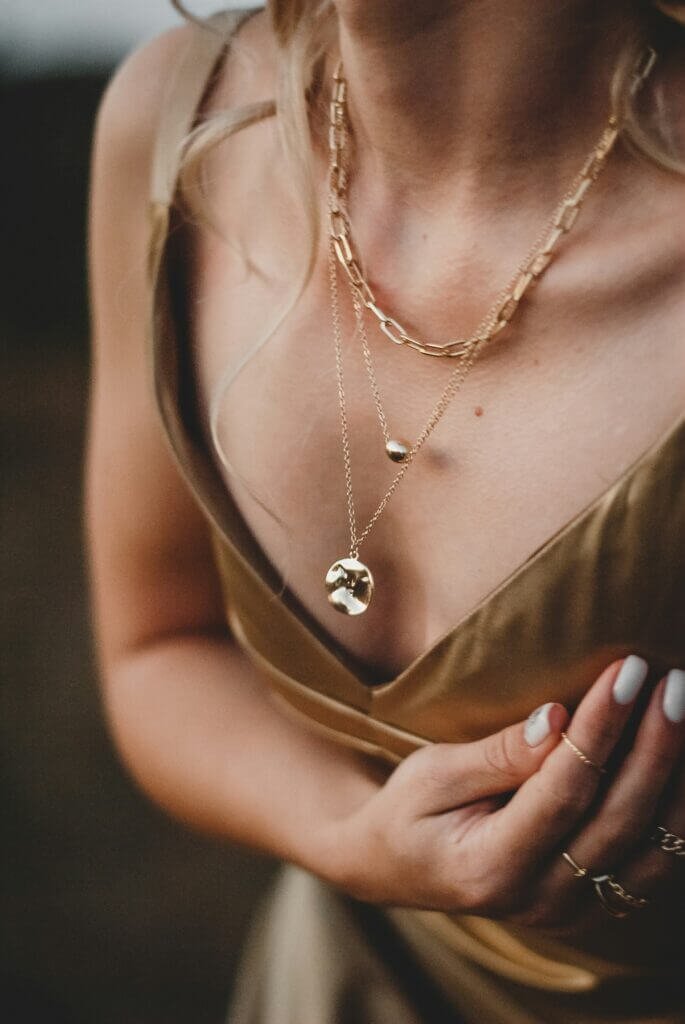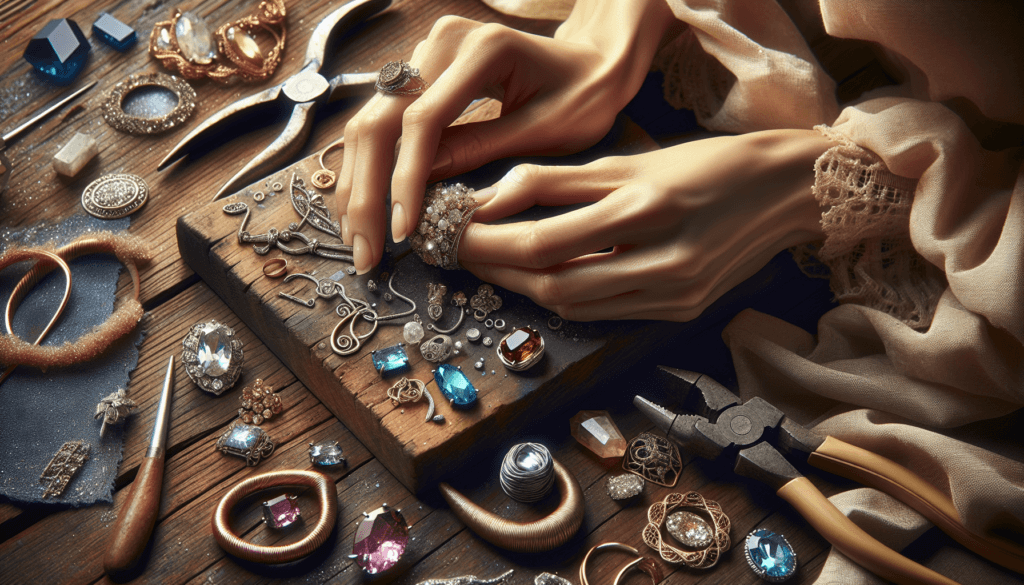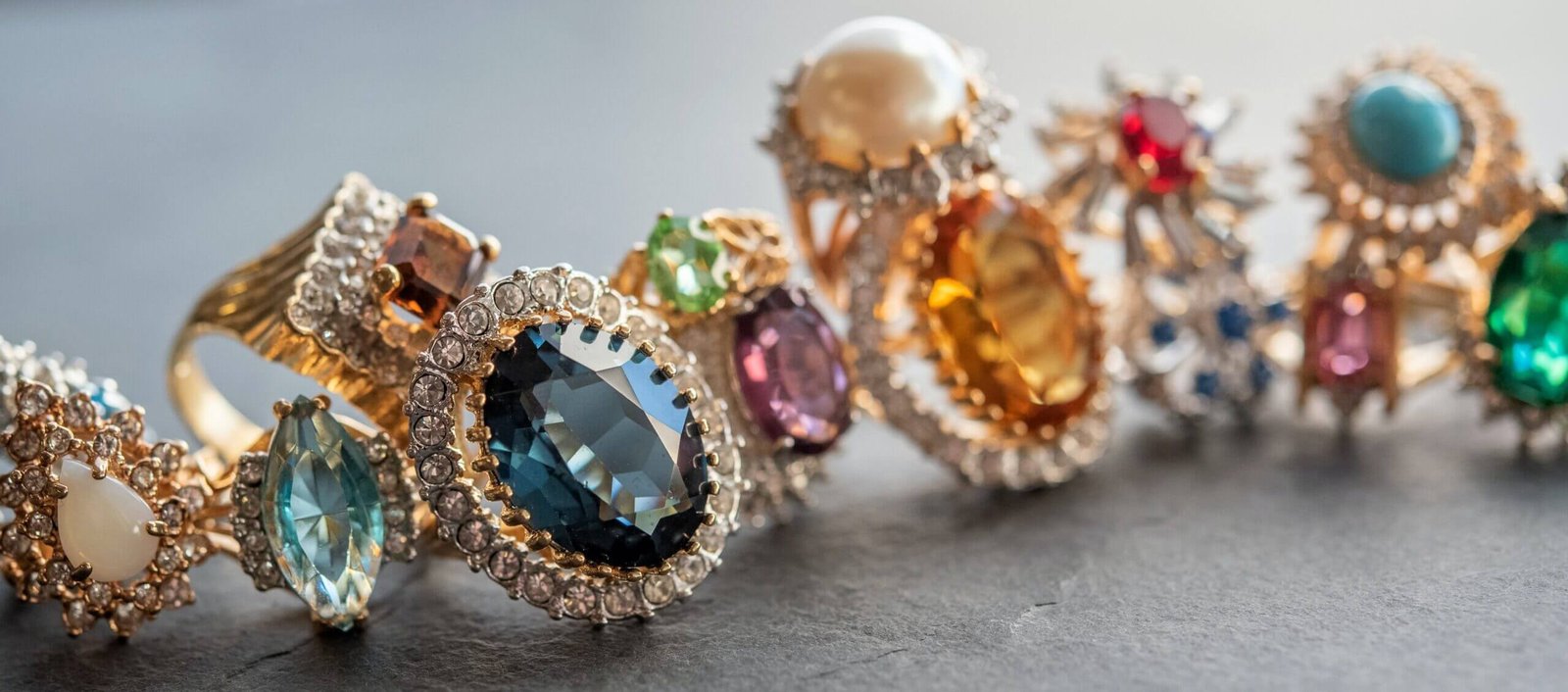Before investing in a beautiful piece of jewelry, it’s important for you to know if it’s handmade or not. Determining the handiwork of your potential treasure can be a task often overlooked. This handy guide aims to help you identify handmade jewelry, using specific markers and clues you can look out for. By improving your discerning eye, you’ll not only appreciate the craftsmanship but also ensure that you are buying an authentic piece. Now, get ready to explore the world of artisans and their unparalleled creativity.

Understanding the Definition of Handmade Jewelry
Handmade jewelry is just what it sounds like, jewelry that has been manually crafted by an artisan without the use of mass-manufacturing machines. Each piece is created with skillful precision by individuals who are passionate about their craft, making each piece unique.
Explaining the concept of handmade jewelry
At its core, the essence of handmade jewelry lies in the individual attention and careful craftsmanship of its maker. It begins with a design concept, and the maker molds and forms metals and stones, painstakingly weaving them together to create a unique piece. This elaborate process involves not only technical knowledge and skills, but also a great deal of creativity, love, and patience.
Differences between handmade, handcrafted, and hand assembled jewelry
Handmade, handcrafted, and hand-assembled are labels often seen in the jewelry making industry, but each has a distinct meaning. Handmade refers to those pieces where every process is done by hand, from forming the metal to setting the stone. Handcrafted jewelry may use pre-made components like chains or clasps, but the design elements are still created by hand. Hand assembled jewelry is made from pre-made parts and pieces that are put together by hand. Though all require a degree of hand interaction, handmade is the most skill-intensive and unique.
Signs of Handmade Jewelry
Identifying handmade jewelry can be tricky, even for experienced eyes, but there are certain clues to look for.
Imperfections and irregularities
One of the charming aspects of handmade jewelry is its imperfections. Subtle irregularities or asymmetry, variations in pattern or size, or even microscopic line marks from a jeweler’s tool can be indicators that a piece is handmade.
Unique designs
Handmade jewelry tends to be more unique and creative, as it bears the personal touch and vision of the artisan. These pieces may feature unusual shapes, patterns, combinations of materials or a singular design aesthetic that sets it apart from mass-produced items.
Non-Industrially made materials
There is a range of materials that aren’t typically used in industrial jewelry-making processes. Organic, recycled or eco-friendly materials, as well as unusual gemstones, can be signs of handmade creations.

Investigate the Jewelry’s Origins
If you’re interested in a piece of jewelry, it’s important to learn about its origins.
Checking the trademark and maker’s mark
Authentic handmade jewelry often has a maker’s mark or a trademark. This stamp or engraving, usually found on the backside or inside bands of jewelry, represents the individual or company that made the piece.
Understanding where and how the jewelry was acquired
Knowing the provenance of a piece can also help you determine if it’s handmade. Did it come from a small fine jewelry retailer, a craft show, or a boutique? These venues are more likely to carry handmade jewelry.
Check the Price of the Jewelry
Handmade jewelry is often more expensive than machine-made pieces, but there are reasons for this price difference.
Comparing prices of handmade and machine made jewelry
Handmade jewelry requires far more time, skill and often, more expensive materials, which is reflected in its price. In contrast, machine-made items can be mass-produced quickly and comparatively cheaply.
Considering factors that influence the price of handmade jewelry
Aside from the time and skill involved, other factors can drive up the price. These can include the cost of materials (precious metals and gemstones), design complexity, and whether it’s a one-of-a-kind piece.

Examine the Jewelry’s Features
Keen observation can yield hints about a piece’s origins.
Quality and type of materials used
Look closely at the materials used. Handmade pieces often use high-quality, durable materials that are lovingly selected by the artisan. Such pieces are built to last, and the quality can be seen and felt.
Details in the design and craftsmanship
Handmade jewelry often showcases excellent craftsmanship, with intricate designs and careful attention given to every detail. Look for unique settings, hand engraving or signatures, as these can be signs of handmade work.
Looking for Soldering Marks
Soldering marks are often an indicator that a piece of jewelry was made by hand.
Understanding what soldering marks are
In jewelry making, soldering involves using a high-temperature torch to fuse pieces of metal together. This process often leaves behind tiny lines or pits, known as soldering marks.
How to spot soldering marks
You will need a magnifier or jeweler’s loupe to spot these marks. Look at where different parts of the jewelry join together, you may be able to see a thin line where the metals have been fused, which is a good indication of handmade work.

Confirm the Jewelry’s Weight and Balance
Checking the weight and balance of a piece can provide insights into its production process.
Understanding the relevance of weight and balance
Handmade jewelry often has a hearty weight and smooth balance, which is a result of the individual attention given during its creation.
How to weigh and balance check a piece of jewelry
To evaluate the weight, simply hold the piece in your hand to get a sense of its heft. To check the balance, hold it up by one end or lay it flat to see how it distributes its weight.
Handmade Jewelry and Hallmarks
Hallmarks can be another clue in identifying handmade jewelry.
What are hallmarks
Hallmarks are small imprints or engravings found on precious metal jewelry. They indicate the metallic content and often the maker’s identity.
How to find and decipher hallmarks
Hallmarks are usually located on the underside or back of a piece of jewelry. You may need a magnifier to find and read them. If you’re unsure what they mean, research online or consult an expert.

Consulting a Jewelry Expert or Appraiser
If you’re still unsure, it may be beneficial to consult with an expert.
The benefits of consulting an expert
Jewelry experts and certified appraisers have the skills and experience to accurately evaluate and identify handmade jewelry. They can provide valuable insights into the craftsmanship, rarity, and value of a piece.
What to expect during a jewelry appraisal
During an appraisal, the expert will closely inspect your piece using specialized tools. They’ll look at the materials, design, craftsmanship, hallmarks, and other unique features to provide an evaluation.
Sustainability Factor of Handmade Jewelry
Yet another advantage of handmade jewelry is the sustainability factor.
Understanding the connection between handmade jewelry and sustainability
Handmade jewelry, particularly when made with locally sourced, fair-trade, or recycled materials, often carries a lower environmental impact than mass-produced items. The handmade process requires less energy, creates less waste and supports local economies.
How to determine if a piece is ethically made and sourced
Many artists and jewelry makers are committed to sustainability and ethical sourcing. They may provide information about where their materials come from and how they’re sourced. If such information isn’t readily available, don’t hesitate to ask. Ethically minded designers are often proud to share their practices.



